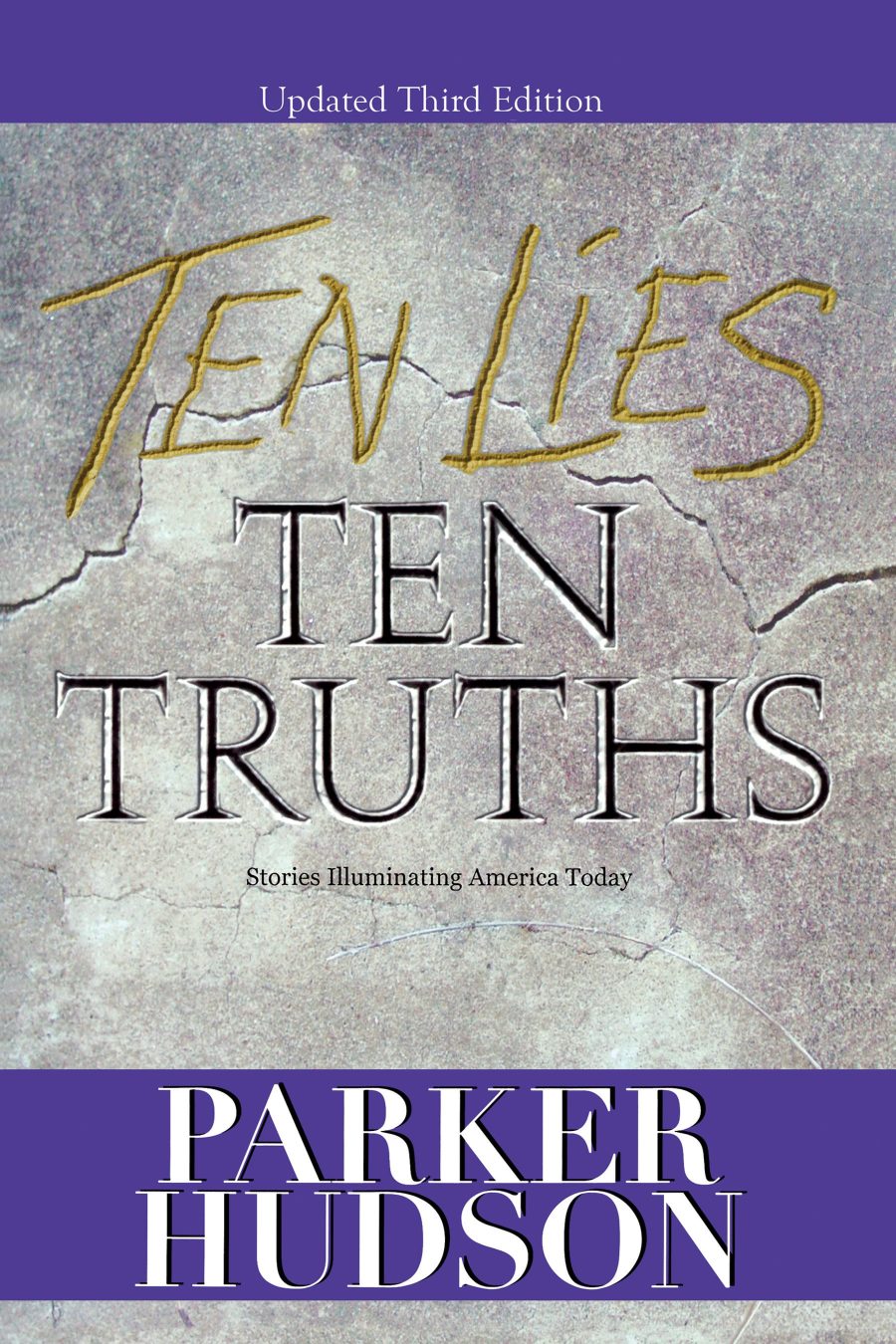I initially watched with alarm the process through which President-elect Biden filled his Cabinet and Executive Branch nominations. A key criterion for selection appeared to be one’s skin color, gender or sexual orientation, not experience, ability or past performance in a related role.

Whatever the competition might be, I believed that the best and the brightest would rise to the top and be selected.
Taken to an extreme, the opposite of meritocracy leads to autocracy, nepotism, tribalism, or identity politics, where advancement and entitlements are handed out purely because of who you are, not because of anything you’ve individually accomplished.
So, theoretically, any move away from a meritocracy sounds like a system in which decision makers—the government, employers, admissions officers, selection committees—can have too much arbitrary power to pick winners and losers for many wrong reasons. And the resulting selections would then be people less able to actually do the tasks required, leading to a general lowering of standards and a lowering of performance across society.
That is how I thought until recently, but I have mellowed on this subject, as reality has impacted theory, and I am now more open to relaxing the pure-meritocracy approach. There are at least four reasons for this shift in my perspective.
1.The Level Playing Field. One key foundation of the meritocracy approach is the assumption that candidates are selected from a “level playing field.” Conservatives like me have made too-simple statements like “Government exists to level the playing field so that everyone has an equal chance,” and “The role of government is equality of opportunity, not equality of outcomes.”

Consider the U.S. military, rightly praised as a nearly perfect meritocracy in which many people advanced far beyond what they might have achieved in the civilian sector. But until World War II “people” in the military meant white males, and after the war, “people” still generally meant males. For those allowed inside to participate, the field was remarkably level and produced results based almost entirely on genuine personal achievement, but for those excluded, it was irrelevant and unfair.
As an aside to this point and on a related subject, let me take a moment to clarify an important distinction which is not usually made. When I question mixing women and men in combat operations in our military, as I did almost 30 years ago in my second novel, The President, it was not because I considered women—or gay people for that matter—any less capable, skilled or patriotic than straight males. It is the mixing of young men and women in high pressure, life threatening situations which concerned me, due to the inexorable power of hormones and gender-imprinted behavior that could cause a dangerous drop in the readiness and performance of the unit as a whole. And it still concerns me.
In the civilian world, start by considering the basic playing field of education. Does anyone believe that “Separate but Equal” was true? Even today, despite overwhelming demand from inner-city parents for their children to attend better elementary schools through vouchers and choice, the teachers’ unions and the politicians they elect work together to force the children into poorer-performing public schools. Will even the best and the brightest of those children graduate onto a level playing field to compete with others for higher education positions and then for jobs?
Looking at the economy in general, as I mentioned two years ago in a post “When the Law is Wrong”, both federal and state governments discriminated against black Americans—even black veterans—for decades, by decreeing where they could and could not buy or rent houses, enforcing racial segregation and discrimination. And severely restricting the possibility for family wealth creation.
And then there is our treatment of Native Americans. And of many Hispanic American groups.
So in some ideal world it may be correct to assume a level playing field from which a meritocracy advances the best performers with the greatest abilities, but that’s not the country where I live.
2. It Doesn’t Work Well. Several studies over long periods have shown the counter-intuitive result that when decision makers are told to decide advancements based on merit alone, they actually wind up skewing the results toward people like themselves, which have generally been white males. See “The False Promise of Meritocracy” and “Meritocracy is Bad for You.”

So it appears that even when we say the right things and try to focus on merit, unless we are very careful, the results still favor those who are like us.
3. Help, Luck and Providence at work. Looking back on six decades since beginning high school, I can say unequivocally that many and perhaps most of the “advances” in my own life were due to other people’s help, or to luck, circumstance, or, as a believer, to God’s Providence.
Yes, like the Parable of the Talents, I worked hard at whatever task was at hand, trying to do my best with the gifts He gave me. And of course I acknowledge that I did so as a white male. But so much of my life was not controlled by me that it would be a lie for me to say that whatever successes I’ve had are because I merited them.
Just looking at education, I was destined to graduate from Atlanta’s excellent public schools until the city’s parents feared those schools would close, as was threatened by the riots in Birmingham in the fall of 1957. There was a rush to enroll kids in private schools, and I wound up in the sixth grade at one of the best. From which I earned enough advance credits in high school to finish at university in three years. Which in part led to winning a scholarship to 
So I am aware that my life today would be very different had not the earliest skirmishes in the fight for equal rights for black Americans not threatened to close public schools 150 miles from my home, over 60 years ago!
As I’m sure is true in most of our lives, you can pull at any thread of my “achievements” and find that it always included critical help from others, along with a huge amount of God’s Providence. And it also included many events which at that moment I thought would be devastating, but which turned out to be much better than I originally thought I wanted or needed.
So any of us who believes that we are where we are only as a result of our own education, intelligence, good looks, incredibly wise decisions and winning personality haven’t been working in the world I know. Left to accomplish everything on my own merits alone would have resulted in much different and, I suspect, much less positive outcomes in most areas of my life.
4. Who Is a ‘Winner’ in the Kingdom of God? Finally, as a believer, I have to ask what God’s Word tells me about my Savior’s approach to others. Surely, using him as the best possible role model, one aspect of employing our God-given Talents must be caring for and investing in others. He focused on the downtrodden, the outcasts, the “least of these.”

I think the very best way to “bend” the pure-meritocracy rules is one-on-one with a mentor or more senior person who can give advice, and who can then give that boost or open a door which might otherwise not be accessible. All of us should look for opportunities to help others—particularly those on less-level playing fields—by investing our time and talent in their lives. Relationships are so important.
But not everyone is blessed with a personal mentor or appropriate senior advisor. How can we provide some of that same help as a larger community? I can find no better answer than the un-scientific, slightly messy method of consciously setting aside and awarding boosts to people who have traditionally been discriminated against: women and people of color. In education, academics, job placement, promotions, etc., through thousands of individual and committee decisions.
I believe that this process has been at work in many areas of our society for a couple of decades, but we need to embrace, encourage and speed-up this extra-mile inclusion in all areas.
Like much that is needed to improve our nation—more fathers at home, less divorce, less sex outside of marriage, fewer abortions, more emphasis on 
So what is the best path forward? First, I think meritocracy is the right ideal, the right measuring stick to refer back to as the guiding principle for advancement. We should not abandon that guide and move to pure tribalism/identity entitlement, as some want, because it would be a recipe for dumbing down performance and for creating social upheaval.
But having established the meritocracy yardstick, we should then also consciously bend the resulting rules (different in each area) and elevate/select/advance some portion of candidates from groups who have been discriminated against and who need that extra boost.
This approach is not purely conservative or progressive. It may anger some in both camps. Again, it will be imprecise and somewhat imperfect. But as an American and a follower of Jesus, I believe we have to embrace the tension and get on with lifting up our fellow citizens, even when the strict “rules” of meritocracy might say otherwise. And even, with a lot of faith and with very competent staffs, for Cabinet officers.


The opening issue – Biden’s choices & method of choosing his Cabinet – doesn’t seem to mesh with the discussion. If we can’t use meritocracy to fill the most powerful positions in an overly bloated & powerful Federal government or, for that matter, C-Suite executives at companies who employ 1,000s if not 10,000s of people, then when can we use it? I came from literally nothing – parents without power, wealth, or influence. A mother on welfare for 2 years after my mentally ill father abandoned us. Are you saying because I lack melanin in my skin, I was advantaged? That I should step aside for someone with less skill, wisdom (earned from hard knocks, massive mistakes and grit), and drive simply because their skin color, gender, or sexual behavior is different? Maybe for an entry level or mid-level position so that someone can prove their value to the organization. But for a Cabinet Secretary position (i.e. a C-Suite position for one of the largest organizations in the world)? Really? Nope. Meritocracy for that level of work is the only way to go in my mind. And what of Trump’s Cabinet? The most diverse Cabinet in memory – but not selected solely to “check a box”? This theory pays lip service to a flawed logic of tribalism that underlies the canard of “systemic racism” in America.